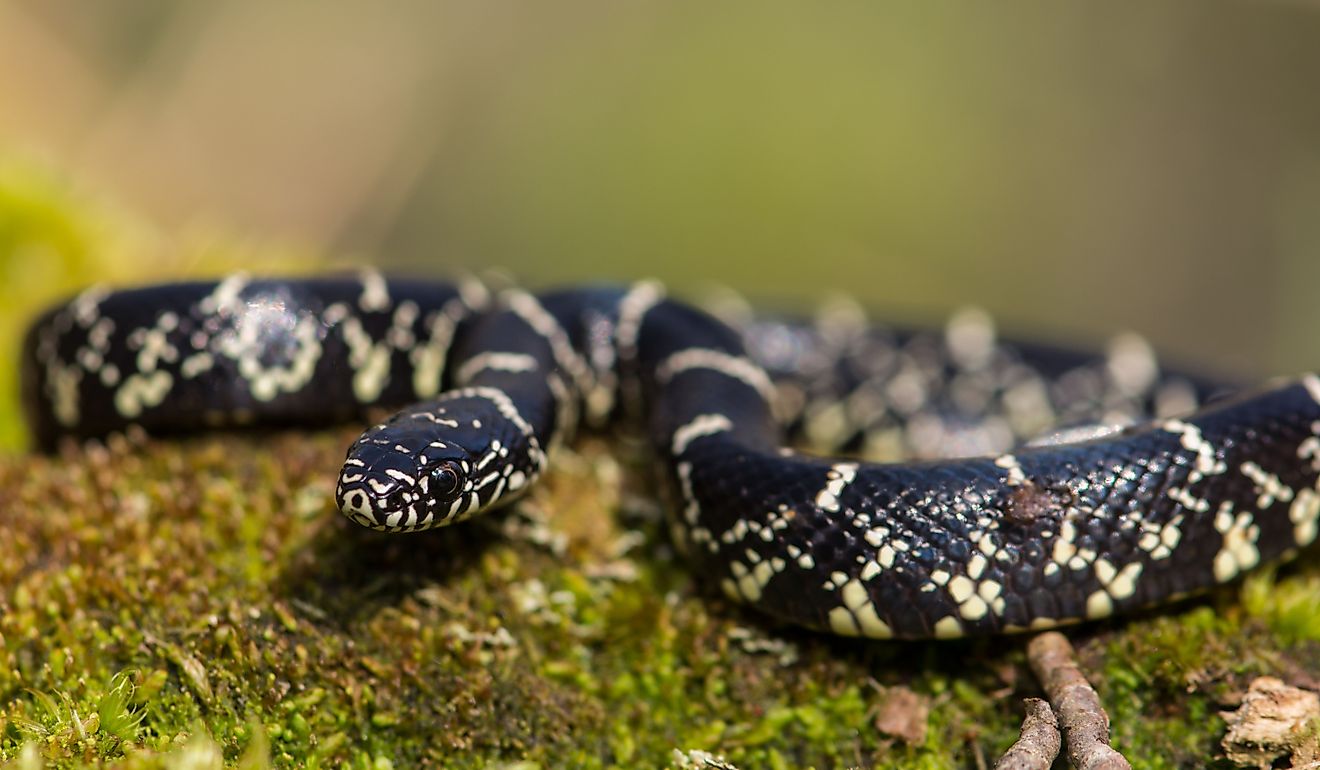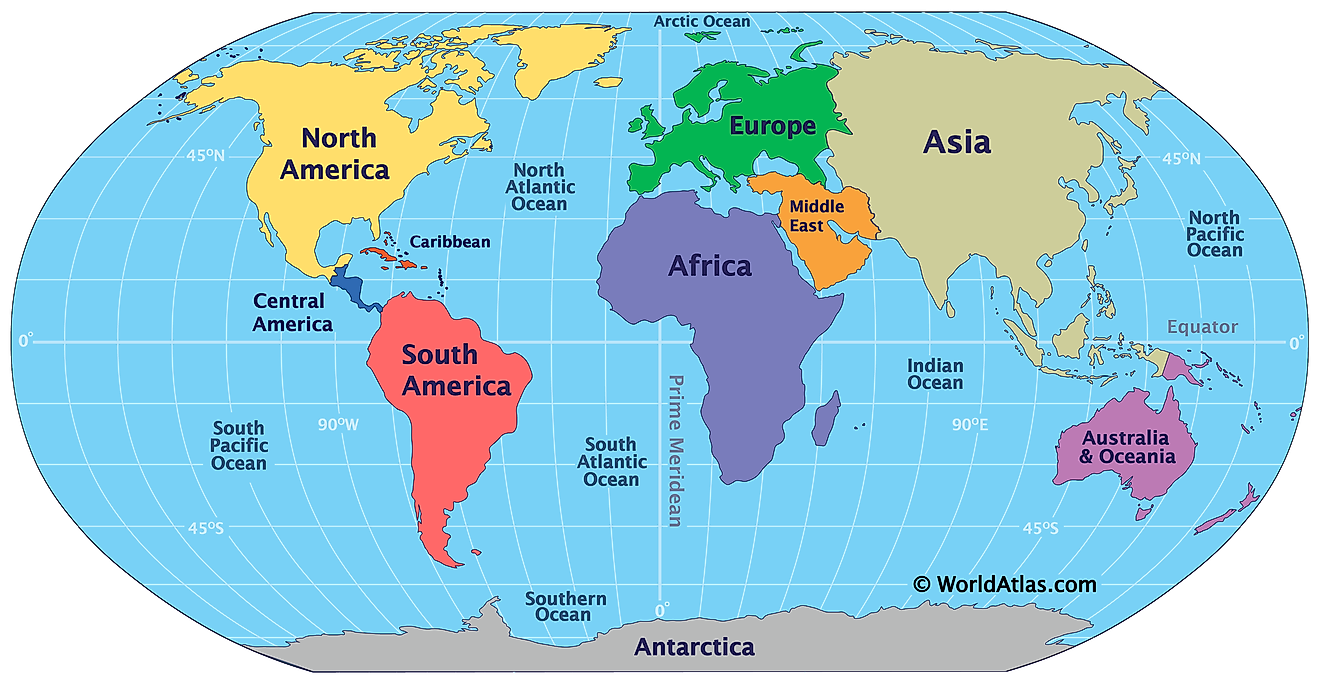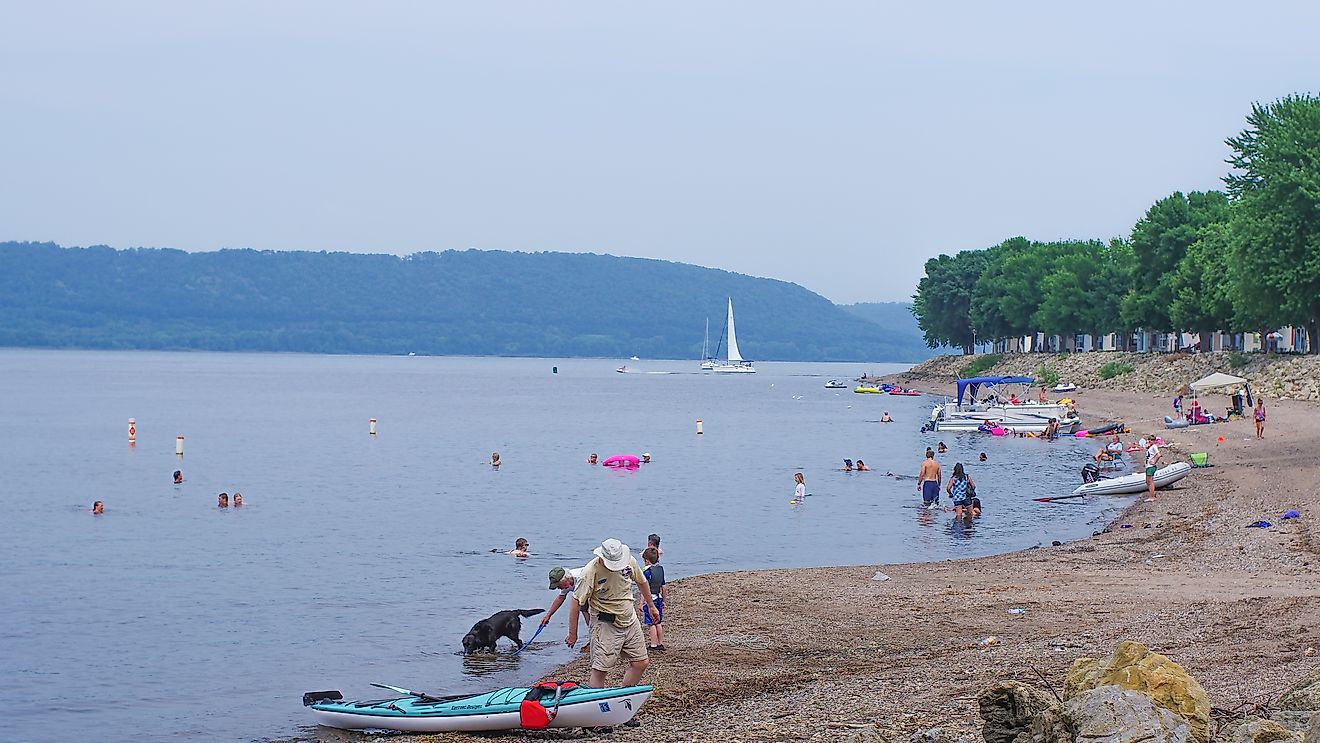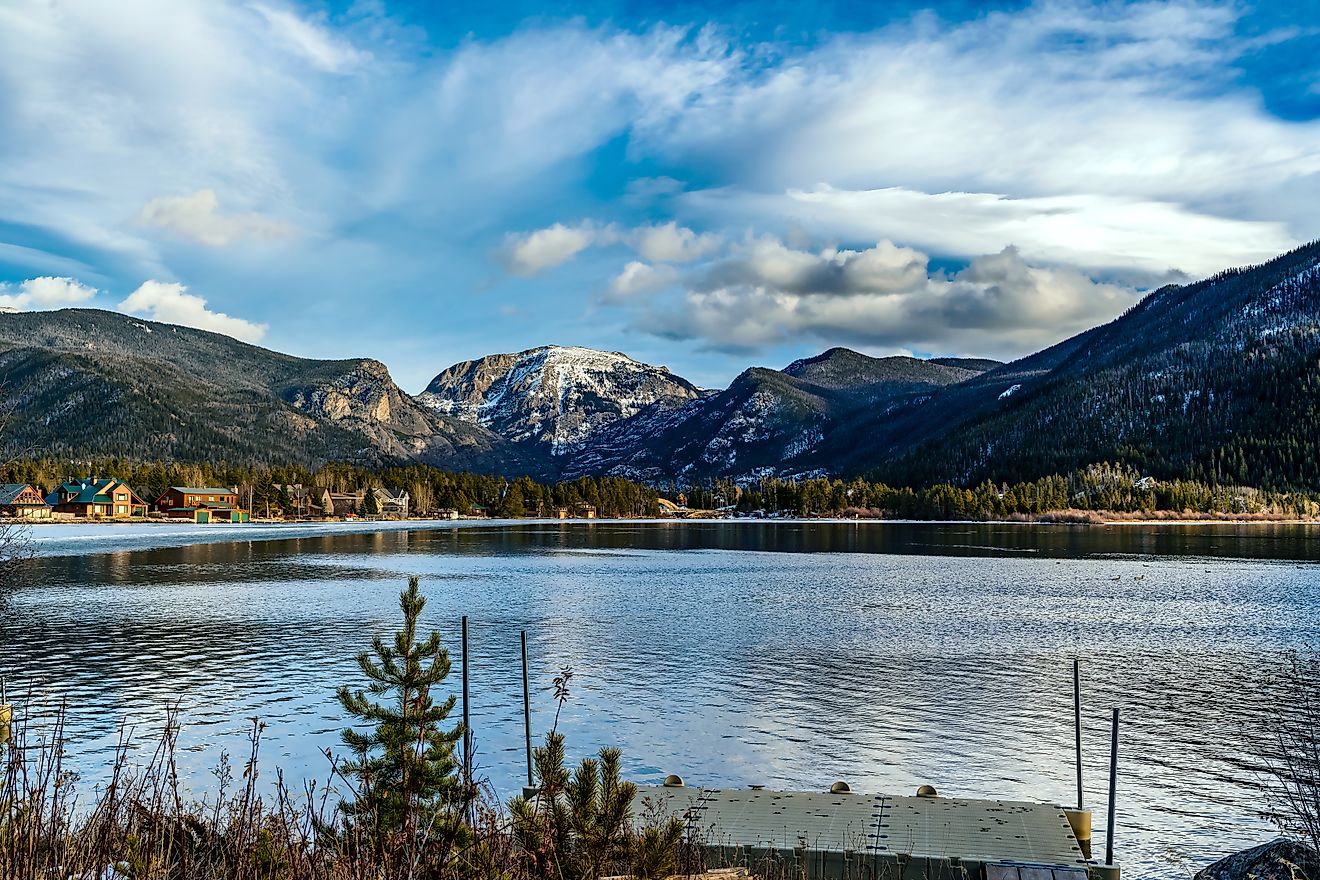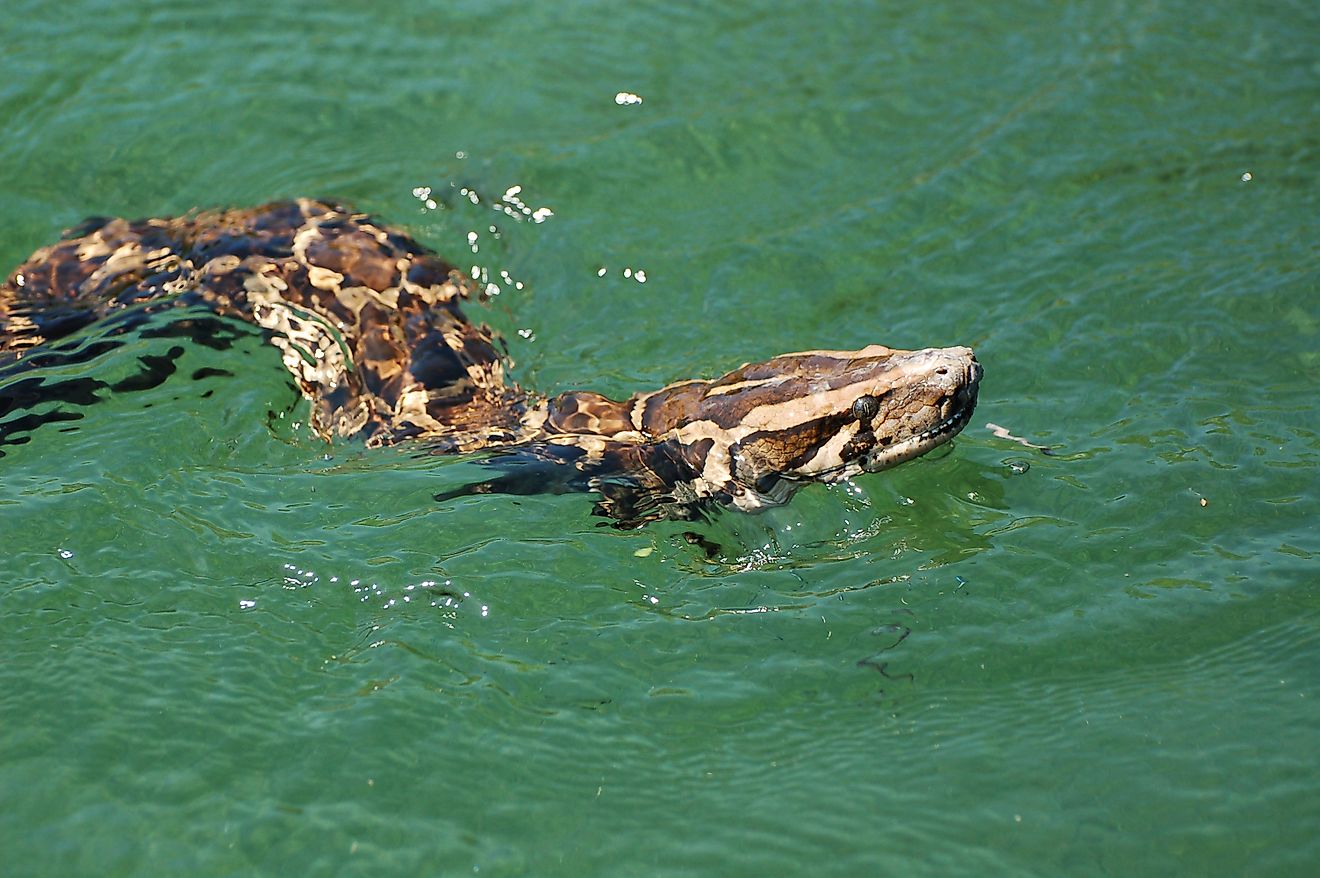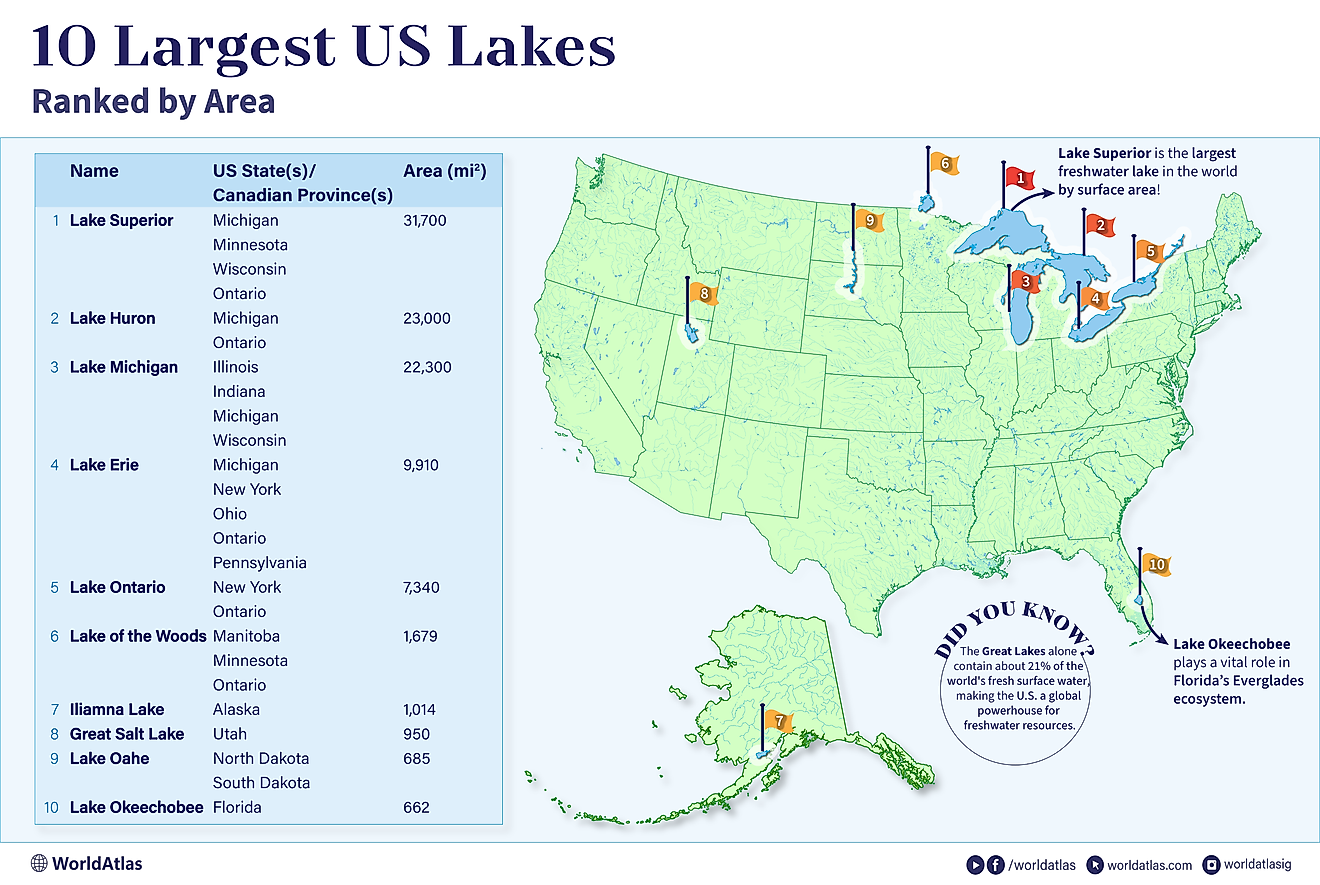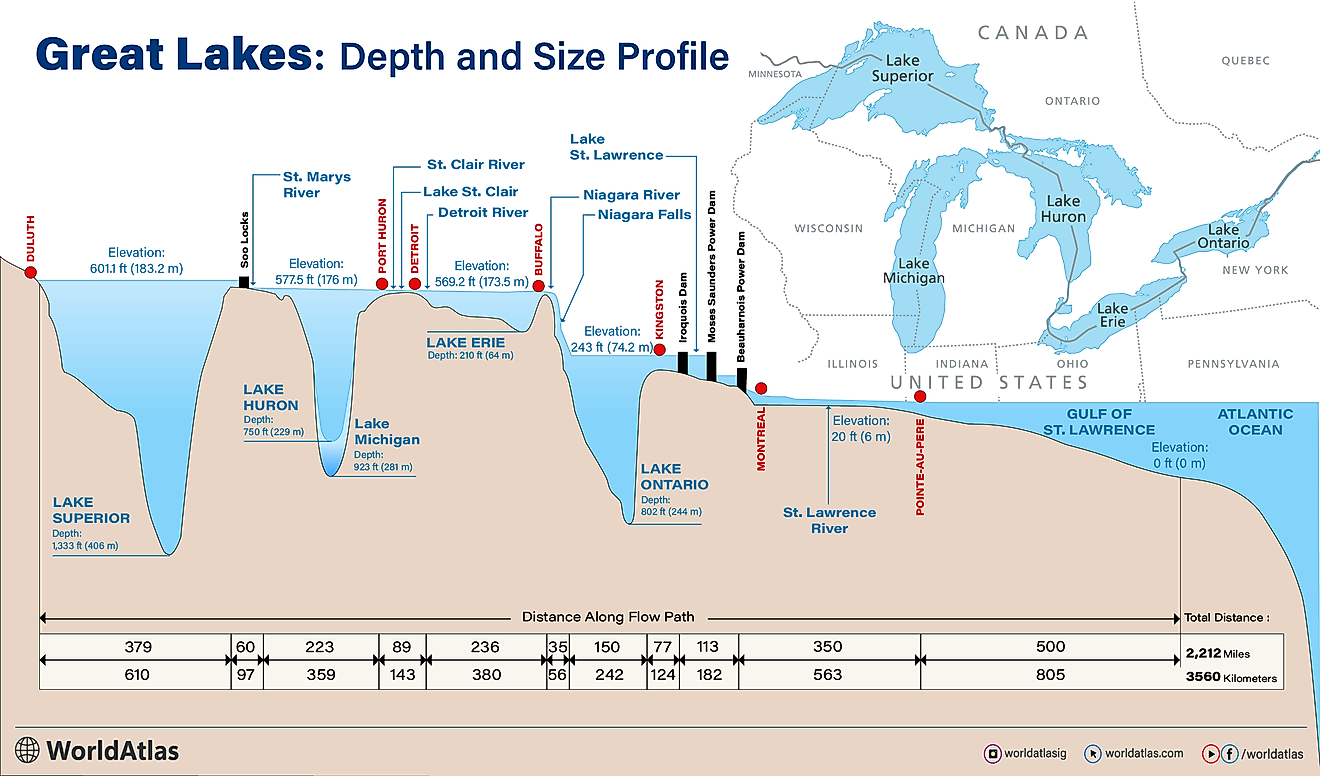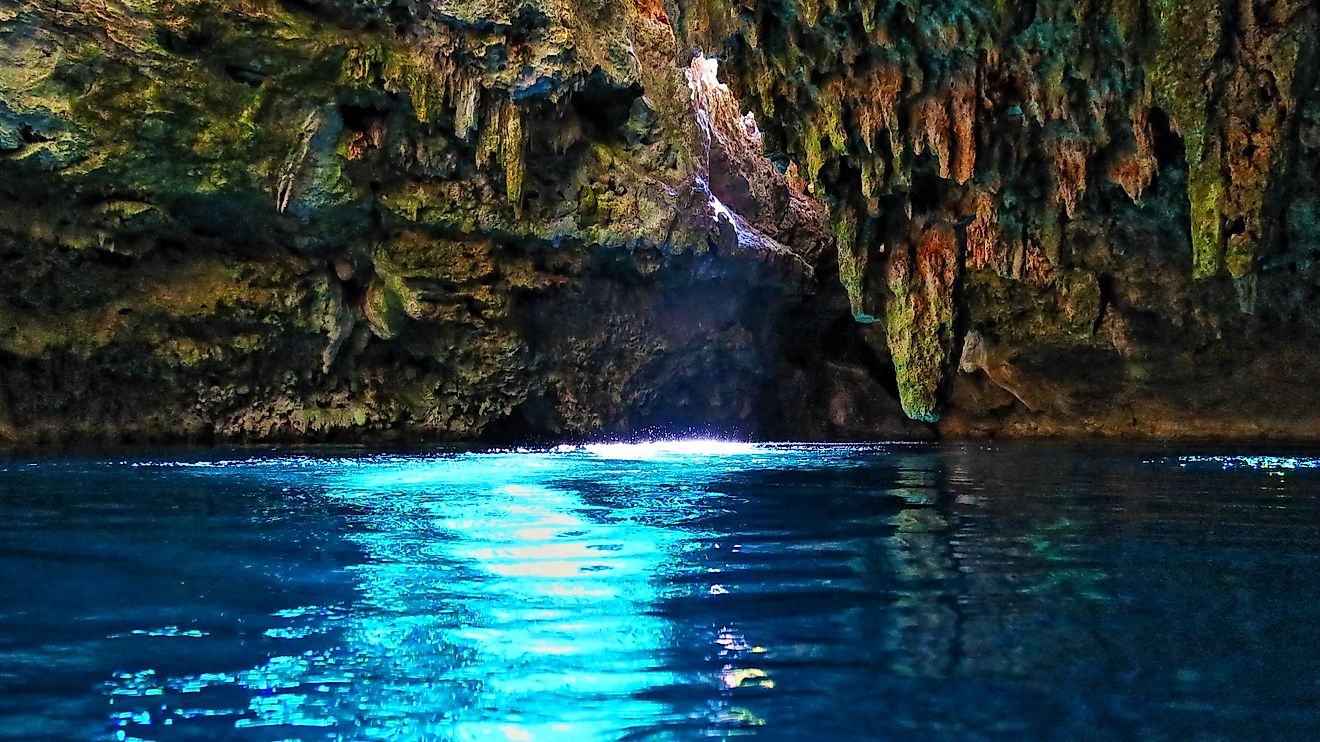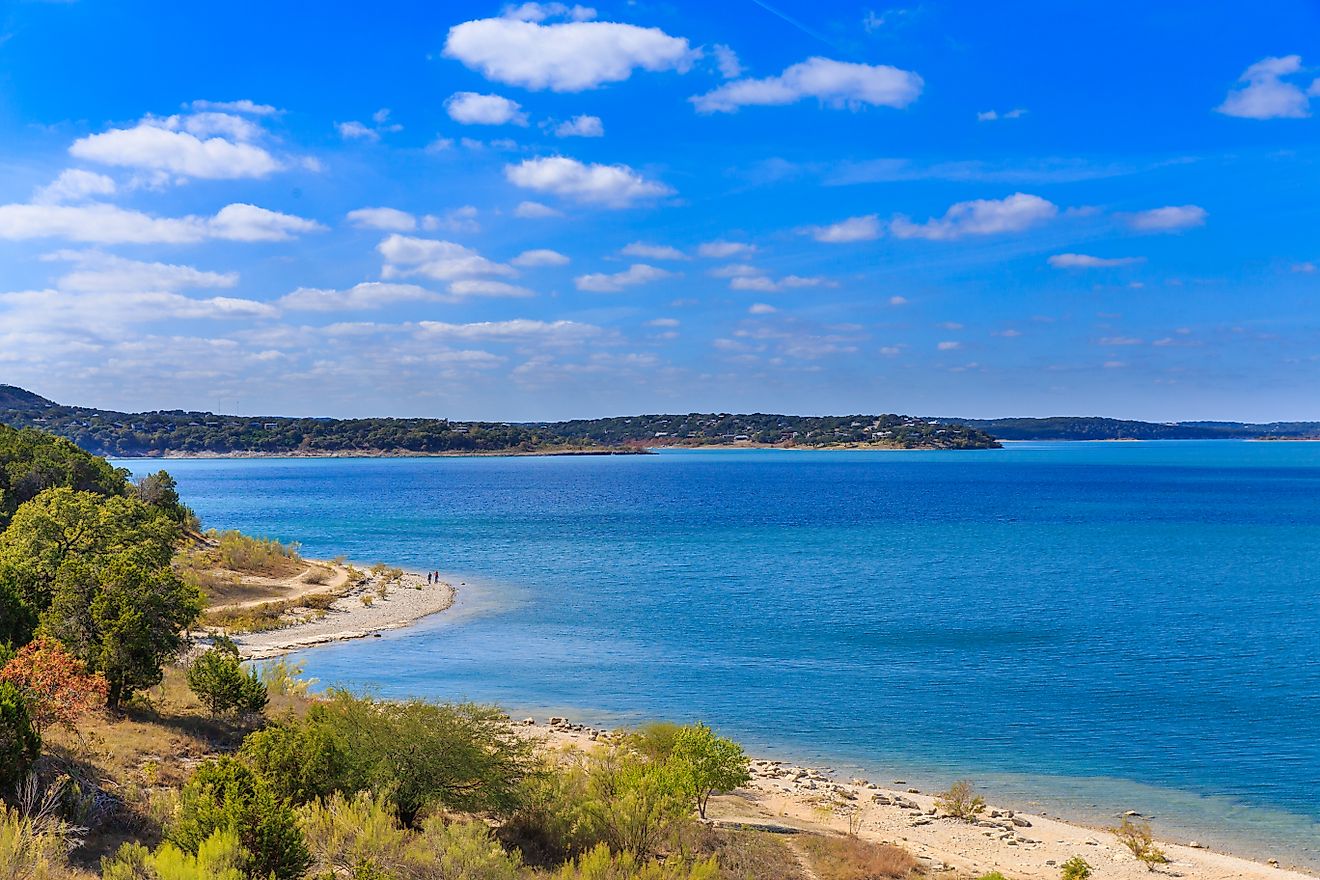
Raystown Lake
Raystown Lake is a reservoir created by the damming of the Raystown Branch of the Juniata River by the Raystown Dam. This beautiful lake is situated in Huntingdon County in the heart of the US state of Pennsylvania. Covering an area of only 33.6 sq. km, Raystown Lake is the largest body of water that is situated entirely within the boundaries of the state of Pennsylvania.
About The Raystown Lake
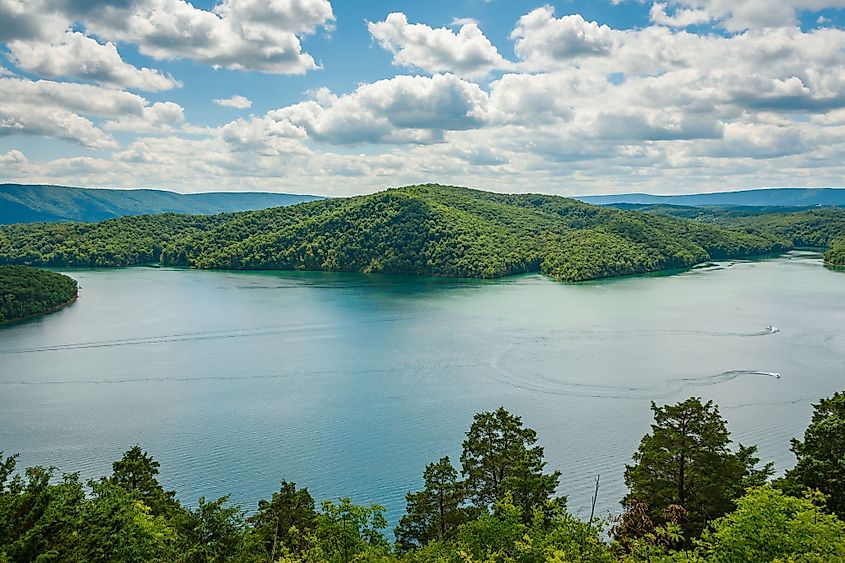
Raystown Lake is a multi-purpose lake that is currently managed by the US Army Corps of Engineers mainly for controlling floods, producing hydroelectricity, and supporting various recreational activities. The lake has a length of 45km and reaches a maximum depth of 61.0m in the deepest area that is located close to the Raystown Dam. Raystown Lake is surrounded by 84.98 sq. km of forested mountain slopes. The lake’s shoreline twists and bends for about 189.9km around the perimeter of the lake that has led to the creation of many deep coves, v-shaped inlets, and jutting points. Several of these deep coves branch back into a series of inlets that in turn holds many small marshy wetlands.
Fauna Of The Raystown Lake
The Raystown Lake supports a healthy fish population and some of the notable fishes that are found here include the Atlantic salmon, bluegill, brook trout, brown trout, catfish, calico bass, carp, largemouth bass, lake trout, muskellunge, perch, pickerel, rock bass, smallmouth bass, striped bass, shad, walleye, and white bass. Raystown Lake also provides an open-water habitat for numerous birds including bald eagles, waterfowls, and various other water birds. The lake serves as a natural avian crossroad for many migrating birds such as the common loon, Canada goose, tundra swan, etc. The woodlands surrounding the lake also host many wild animals including beaver, white-tailed deer, raccoons, river otters, minks, and squirrels.
Visiting The Raystown Lake

The Raystown Lake area attracts more than 1.5 million visitors every year and the lake offer several recreational activities for its visitors like swimming, boating, fishing, scuba diving, mountain biking, etc. In addition to this, there are a total of 594 campsites, luxury accommodations, 2 full-service marinas, 110.2 km of trails, restaurants, and 10 boat launches. Many tourists come to visit the area from far places only to enjoy the peaceful and calming atmosphere of the lake area. Since the US Army Corps of Engineers owns a major portion of the surrounding land, no residential development is allowed here. Therefore, most of the lake area remains undeveloped with the summer homes being constructed close to the lake rather than on the waterfront.
Brief History

Although the current Raystown Lake is quite new, its history goes back into antiquity. The name Raystown has been derived from a trapper named Robert Ray who in 1750, had established a small camp close to the Bedford area. The present-day lake area was originally inhabited by the hunter-gatherers, who probably came to the area after the retreating of the ice sheets in Northern Pennsylvania. It is believed that during this time, the Sheep Rock Shelter offered protection to many groups of Native Americans who inhabited the area. Before the area was inundated by the present-day lake, archaeologists have excavated human remains dating as long as 12,000 years ago from the area. The idea of building the first Raystown Dam was conceived by Warren Brown Simpson and George Ernest in 1905. This dam was the first hydroelectric dam that was constructed on the Raystown Branch of the Juniata River. The first Raystown Lake that was created after the completion of the dam construction in 1911 was relatively shallow and only about one-fourth the size of the present-day lake. However, in 1936, after a massive flood had devastated major parts of the Juniata and Susquehannock river valleys, a need for the construction of a new and large dam was realized. The Flood Control Act of 1962 authorized the construction of the present Raystown Dam and Lake. The US Army Corps of Engineers completed the construction of the new Raystown Dam and Lake in 1973. In 1988, the William D. Matson hydroelectric generating station at the Raystown Dam that is operated by the Allegheny Electric Cooperative started to produce up to 21MW of hydroelectricity.
